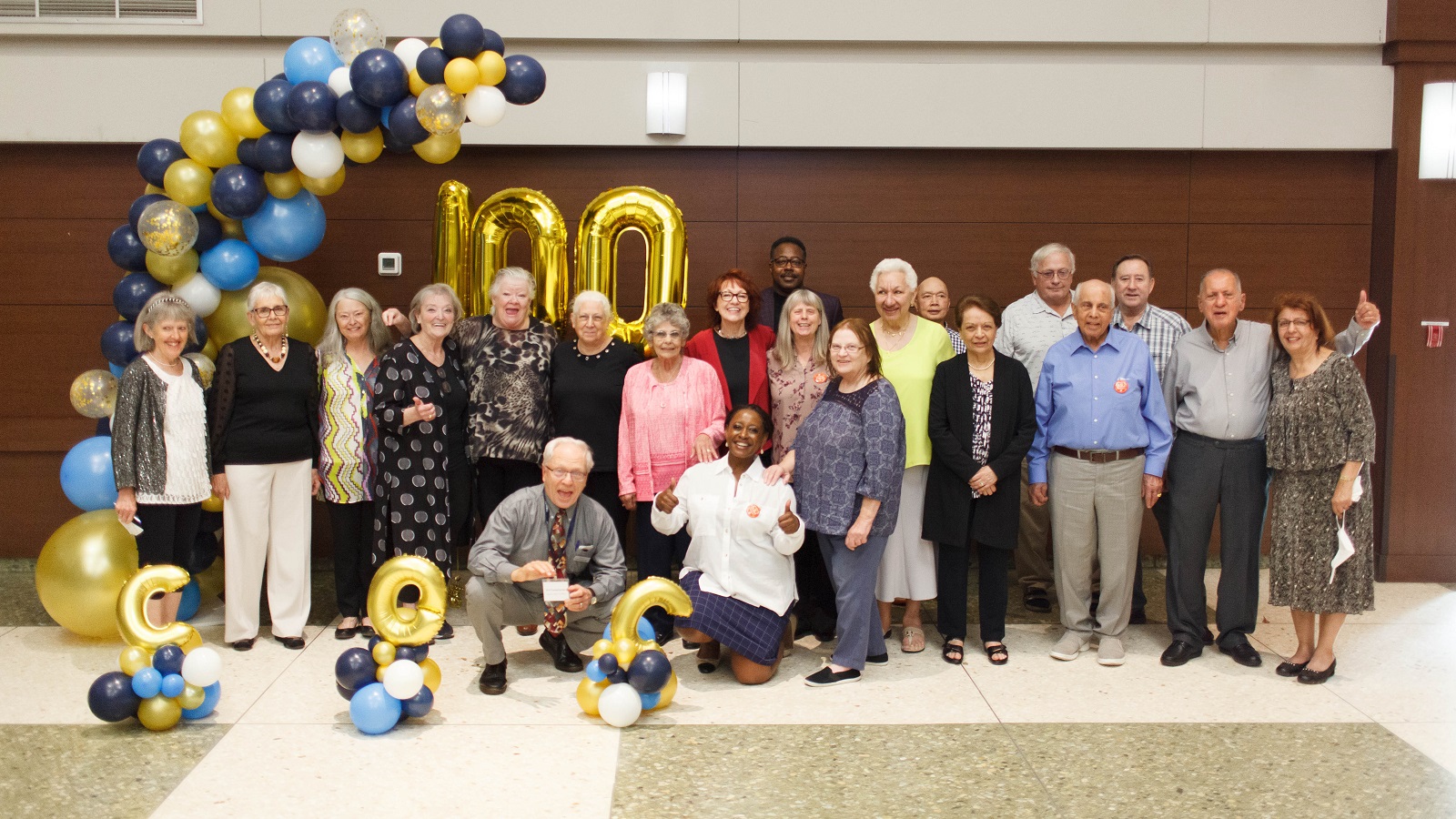BELONGING
AGING IN PLACE
Co-op members are getting older. Aging in place is the ability to continue to live in one’s own co-op home and community safely, independently, and comfortably, benefiting older members, their families and co-op communities.

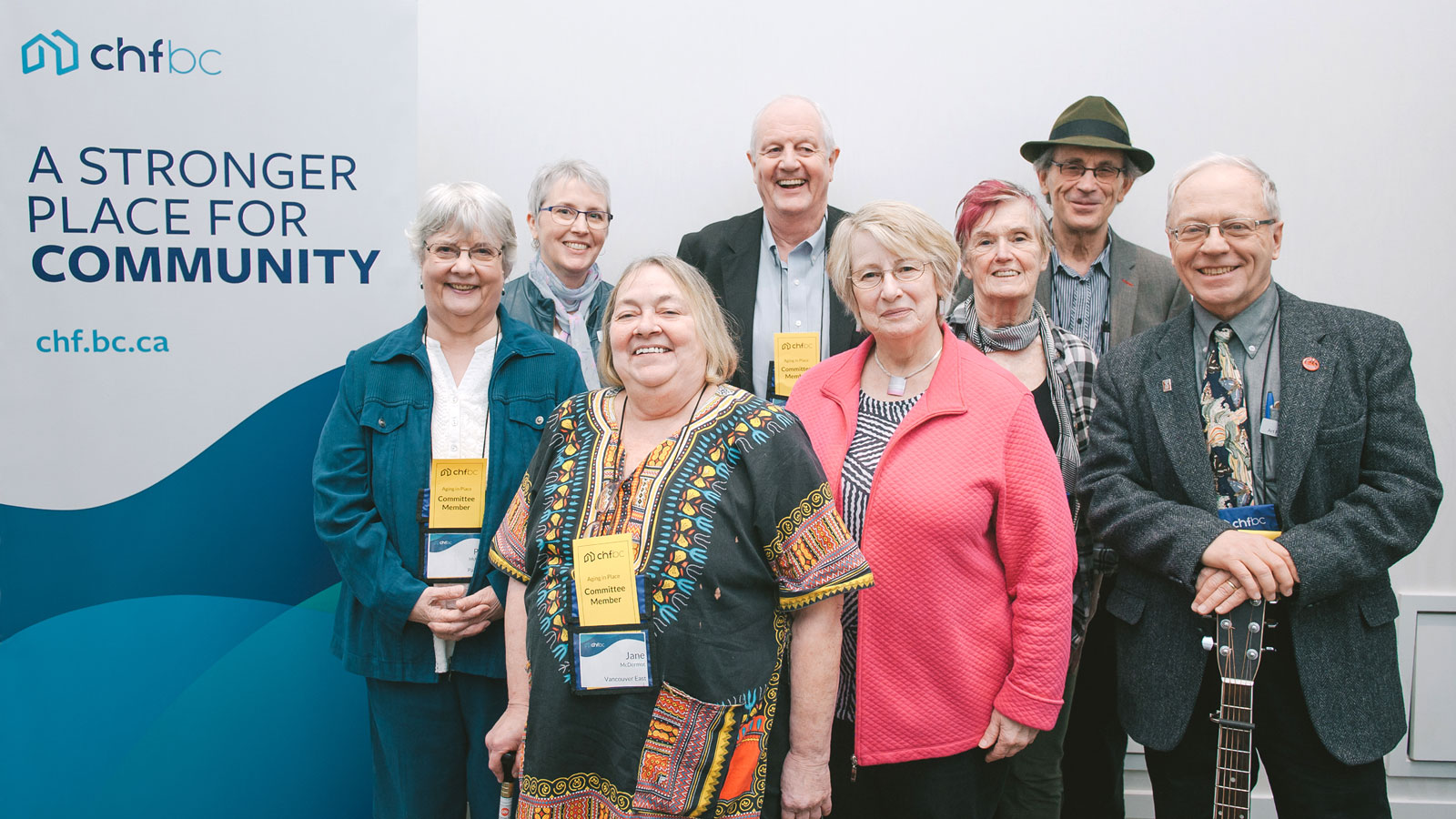
Introduction
As housing co-ops reach new age milestones so do co-op members.
As housing co-op members get older, they may face challenges that make it more difficult to continue to live safely in their units, to remain fully involved in their co-op communities and to know where to get support when they need it.
The benefits of aging in place are well-known, but co-ops may need help to support their valued aging members
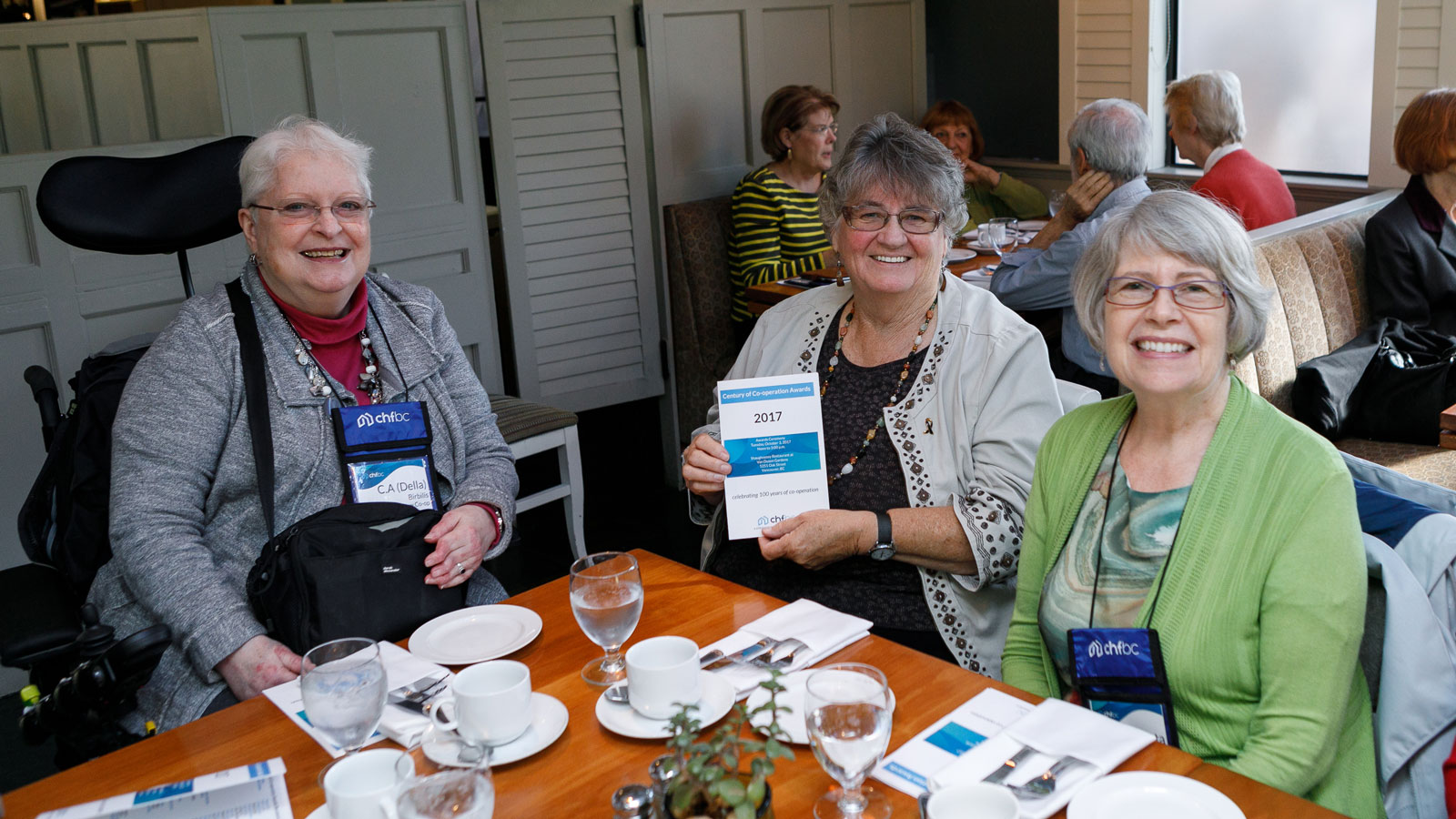
Aging in Place Committee
Our Aging in Place Committee provides a focus for CHF BC's work in this area.
The Aging in Place Committee identifies ways CHF BC can help co-ops to adapt to the changing needs of their members as they age.
To connect with members, request to join the Aging in Place Community Facebook Group.
It is open to any member of a housing co-op across Canada. The group is a resource where co-op members can access information that may be useful to seniors. It is also a place to share ideas about aging in your co-op communities.
To contact the committee, please email us a members@chf.bc.ca or call 604-879-5111 (toll-free 1-866-879-5111).
Century of Co-operation Awards
Are you eligible for our Century of Co-operation Award? Do you know someone who would be eligible for this honour?
CHF BC’s Aging in Place Committee initiated the Century of Co-operation Awards in 2016. Every year the committee welcomes new nominations and applications.
To qualify, you must be living in a CHF BC member housing co-op, and your age plus the length of time you have lived in co-op housing must add up to 100 years or more.
- Here’s the formula: (Member’s age) + (length of time living in co-op housing, current co-op or other co-op) ≥100.
- For example, a person who is 80 years old and has lived in co-op housing for 20 years qualifies with an even 100 years.
CHF BC traditionally recognizes the members on—or around—October 1st, in honour of National Seniors’ Day. To date we have recognized 374 members for this award.

Aging in Place Exchange Network
CHF Canada’s Aging in Place Exchange Network is a new national online network that mobilizes a diverse range of co-op housing leaders with interest and expertise in aging in place including lived experience.
The network’s online platform is a place to share initiatives, knowledge, practices and experiences of aging in place among housing co-op members from regions across Canada.
The Exchange Network uses an online community platform. This platform helps interested co-operators connect with each other between network events to share information and experiences about aging in place in co-op housing communities. The network also hosts online events such as presentations, group discussions and workshops.
The Aging in Place Exchange Network is open to all members, directors and employees of CHF Canada’s members including housing co-operatives, regional federations and property management companies. The network is an invitation-only network. Anyone interested in joining the network must contact info@chfcanada.coop.
The network is looking for members with:
- special aging-in-place expertise
- demonstrated commitment to aging-in-place issues
- passion about aging-in-place issues
- openness to sharing ideas and experiences.
Members of the Exchange Network are encouraged to mobilize their own local networks, share information, host and take part in official events or discussions and bring forward commitments and actions.
Here’s a “How to guide” to help you join and participate in the Aging in Place Exchange Network. To join and participate in the Aging in Place Exchange Network, CHF Canada asks you to read and agree to the Terms and Conditions.
Rethink Aging
Highlights from Rethink Aging: A Bold New Path to Life at Any Age with Dan Levitt on April 11, 2022.
In this presentation, guest speaker Dan Levitt takes a closer look at the opportunities that come with an aging population, combatting ageism and promoting healthy living. The audience explores the broader societal view: how we need to adapt our public policies, our institutions, our social structure, and our infrastructure to make these longer lives enriching and fulfilling.
This interactive talk lays out a framework for doing that, and inspires the audience with recent examples of age reimagined in Canada and around the world. Participants left the session with key takeaways, it’s not about aging, or adding years to the end of our lives, it’s about living – creating a bold new path to living your best life.
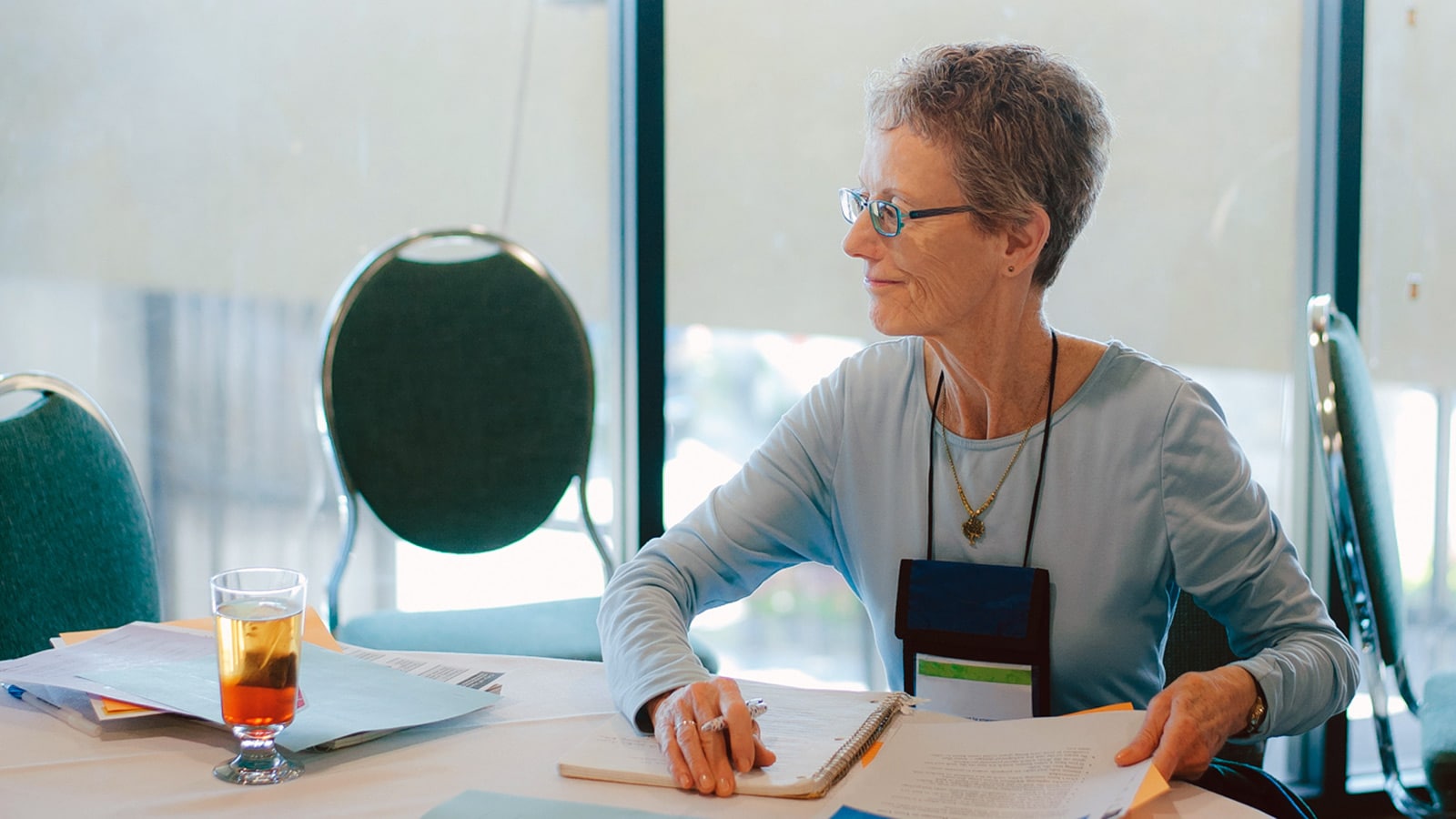
Advance Care Planning
Many older co-op members understand they should prepare for their future in case of failing health. This is considered advance care planning.
Recording wishes and choosing advocates can be confusing and complicated, often resulting in the elder being unprepared for later medical events. Experts recommend writing down your wishes and choosing which legal documents you may need. Remember three key legal documents:
- Will: Is used only after you are gone. Without one, settling your estate can take years, with the courts deciding who inherits. If you already have a will, does it need updating?
- Power of Attorney: Gives authority to someone you trust to speak or act on your behalf, especially regarding financial matters. An enduring power of attorney could allow the representative to sell the owner’s real estate. Often two people are named.
- Representation Agreement: Used for medical issues or decisions when you cannot speak for yourself. It is important to have your wishes put in writing.
For more information about end-of-life planning, see the Nidus Personal Planning Resource Centre or Dying With Dignity. The provincial government offers an Advance Care Planning Guide.
Health and Home Care Services
Often older adults or their caregivers find navigating our healthcare system difficult and confusing.
You can learn how to access home healthcare services through a case manager, or if in hospital, through a social worker. You can find more information about free and subsidized care services through the Health Authorities, the Better at Home program and the Choice in Supports for Independent Living (CSIL) option.
- Case managers: determine your eligibility for wait lists in subsidized care facilities (e.g. assisted living or full residential care). To get one, you need to register with the Community Care section of your local health authority (CMs are assigned based on where you live). An intake assessment will determine your eligibility for future subsidized personal care services in your home. The intake-assessment is done once, except for annual changes to your income and/or residence, or if your last assessment was more than five years ago.
- Social workers: play the same role as a Case Manager if you end up in hospital and require further help at home when released. Social workers will communicate with your CM, providing you are registered. They are part of your medical health team along with your doctors and other therapists.
Tip: Be nice to your CM or social worker because you need their help. Be aware that they have very demanding case-loads.
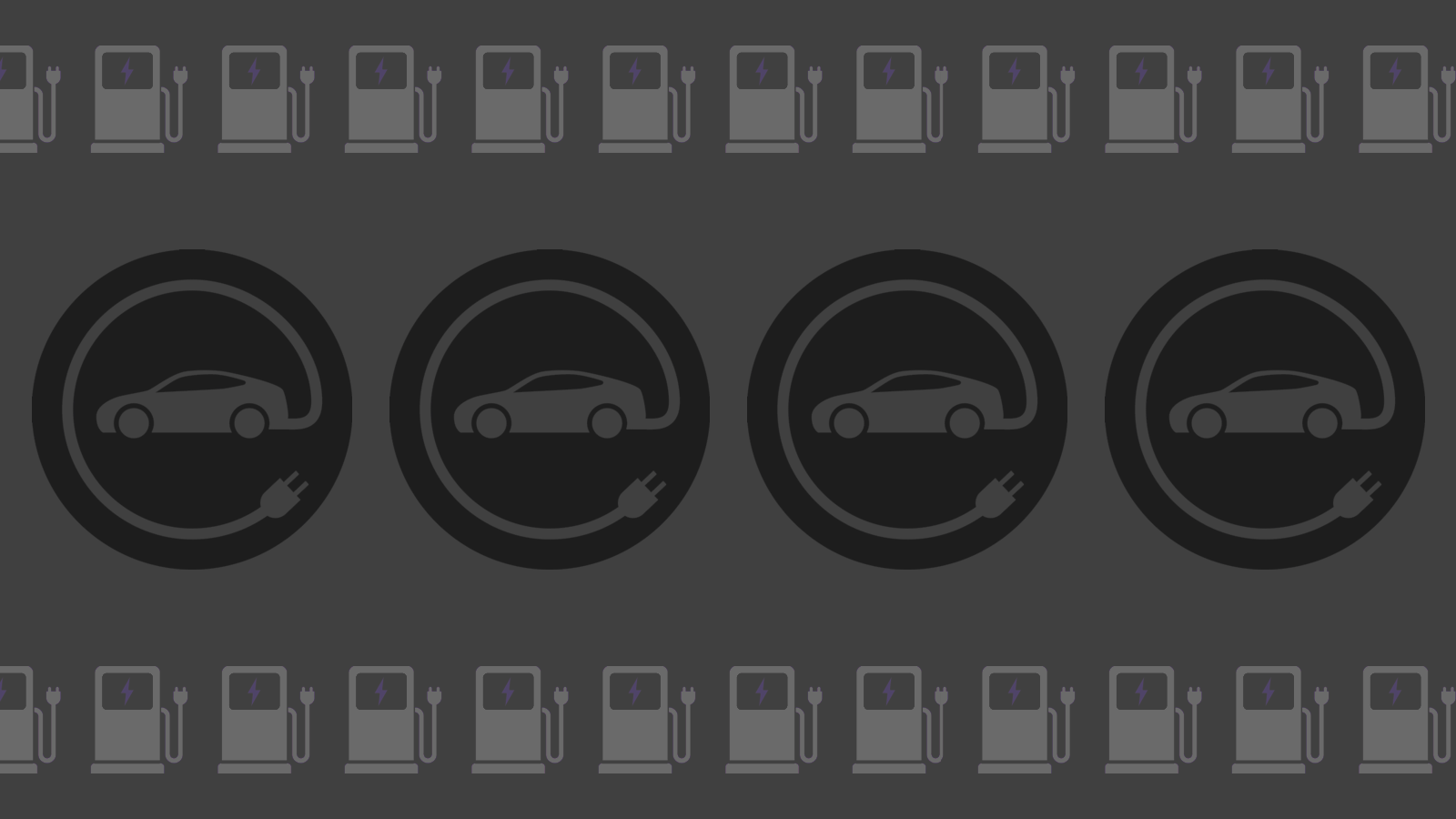
Transportation Services
Getting around, especially for seniors with health and mobility issues, can be a daunting challenge.
The provincially run Better at Home program offers subsidized driving and light housekeeping services. Those with incomes under $30,000 receive a pro-rated reduced rate.
Many BC communities offer a variety of seniors’ bus programs which are free or low-cost, as does TransLink BC with its HandyCard and TaxiSaver vouchers. For those undergoing cancer treatments, the Freemasons run a Cancer-Car program. Another door-to-door regional service is HandyDART.
If you or someone you know is driving and may be a danger to themselves or others, provincial resources are available.
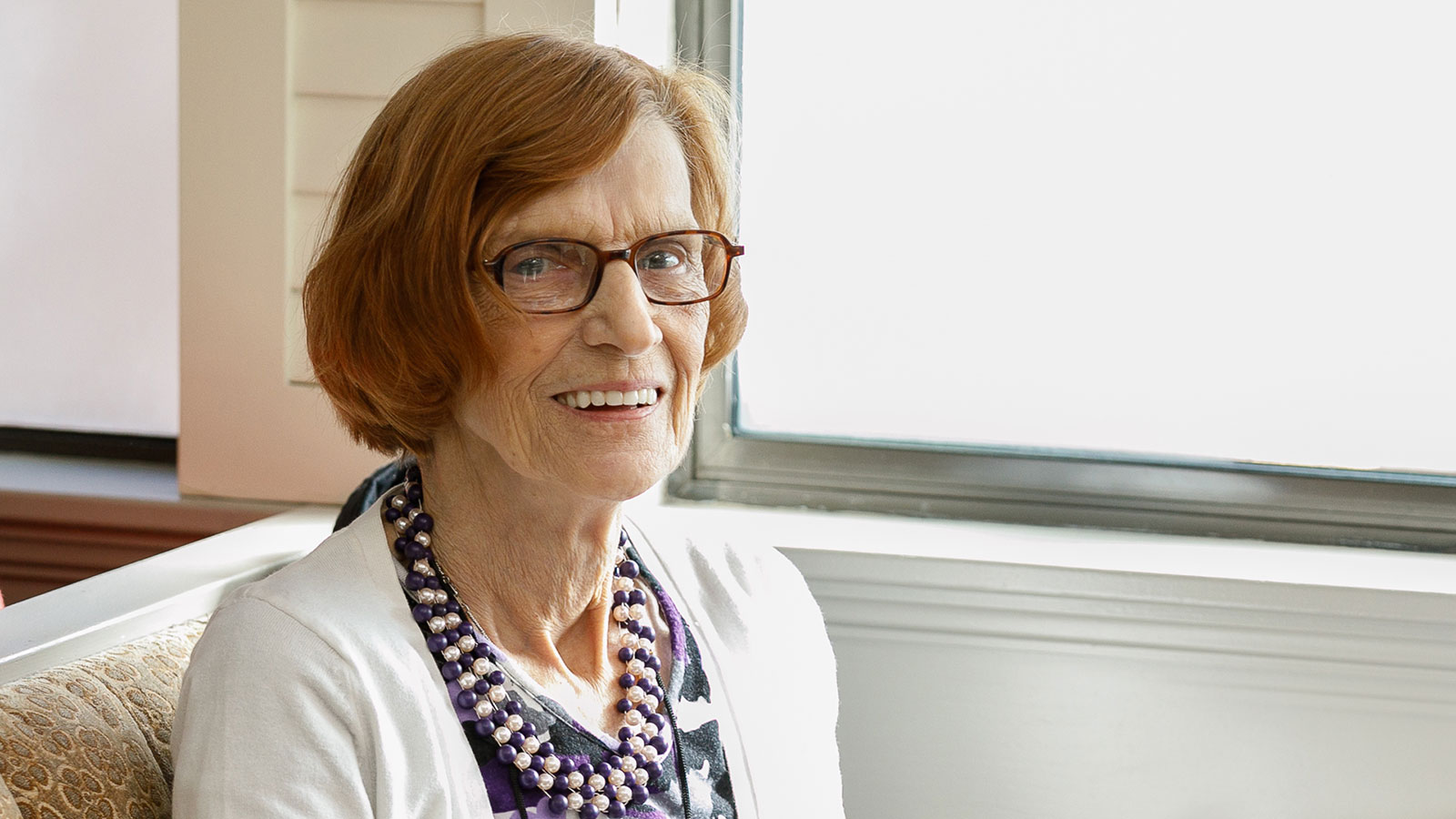
Resources for Seniors
Here are resources for seniors, including information from past workshops, that you may find interesting.
All links are PDFs
CHF BC Resources
- Navigating the Health System (presentation)
- Fighting Isolation (presentation)
- Aging in our co-op community – A legal perspective (from Gehlen-Dabbs lawyers)
- Aging in place (presentation)
- Safety and mobility assessment
- The duty to accommodate
- Disabilities survey sample template
- Community Care Committee – sample tasks
Other Resources
- Office of the Seniors Advocate B.C.
- Thinking about your future? Plan now to Age in Place – A checklist Employment and Social Development Canada (ESDC)
- Aging in place success stories, Canada Mortgage and Housing Corporation, CMHC
- Age-friendly cities and aging in place, Rick Hansen Foundation
- How More Americans Are ‘Aging in Place’ [VIDEO], PBS NewsHour
- Answers On Aging Podcast, USAging
- The relationship between social isolation and elder abuse [PDF], Alberta Elder Abuse Awareness Council
- Aging in Place: Staying connected to family and community, CHF Canada
- ‘I adore her, but sometimes I’m overwhelmed.’ How a program to help older adults age at home allows the whole family to thrive, Toronto Star
- Volunteering in late life may protect the brain against cognitive decline and dementia [VIDEO], UC Davis Health
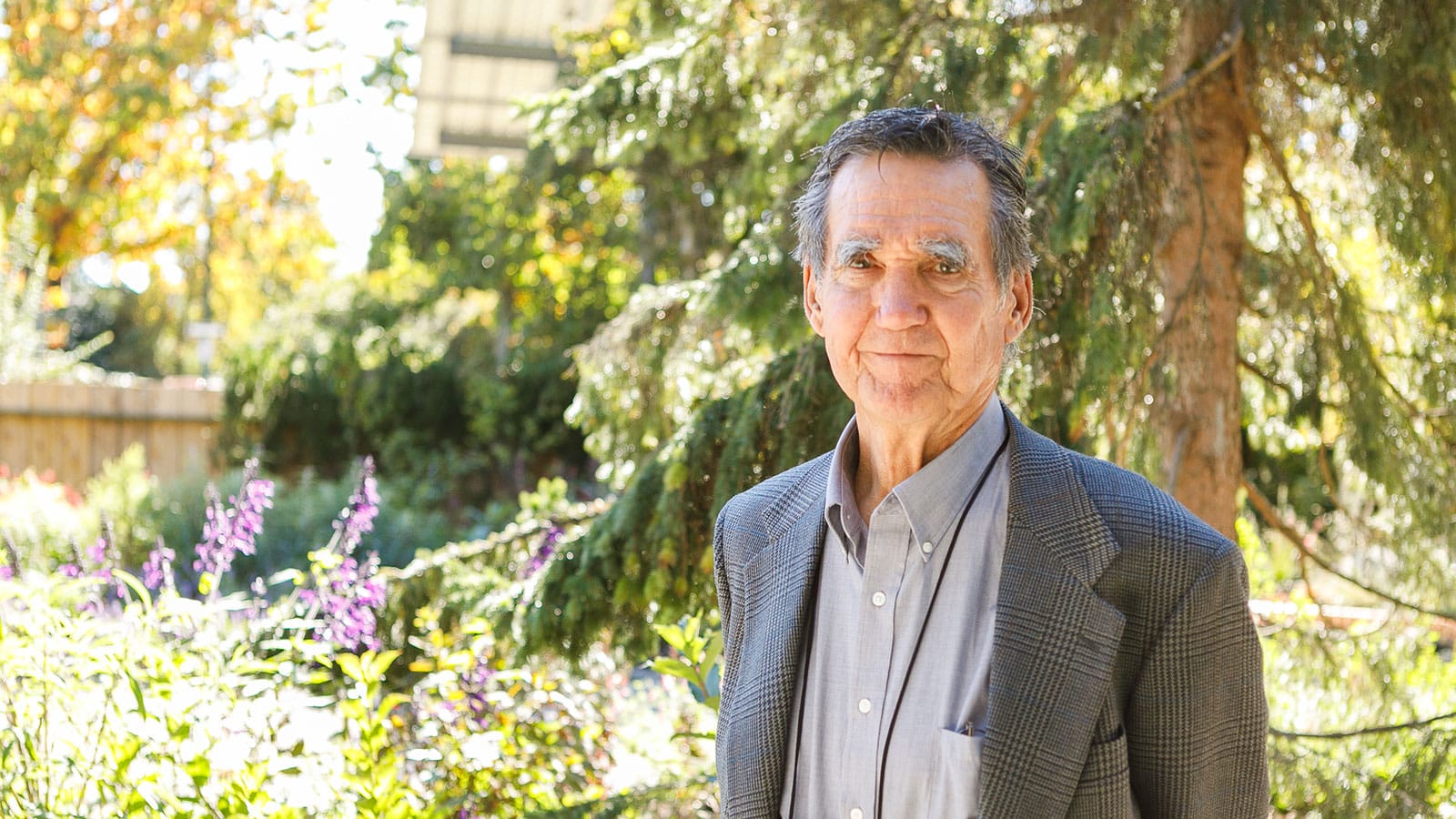
Frequent Questions from Seniors
Some questions come up again and again:
How can seniors access information, home services, or financial assistance? What kinds of legal documents do seniors need? What are the alternatives to remaining in a co-op home?
For answers to these questions and others, take a look at our 10 Tips for Seniors sheet.
